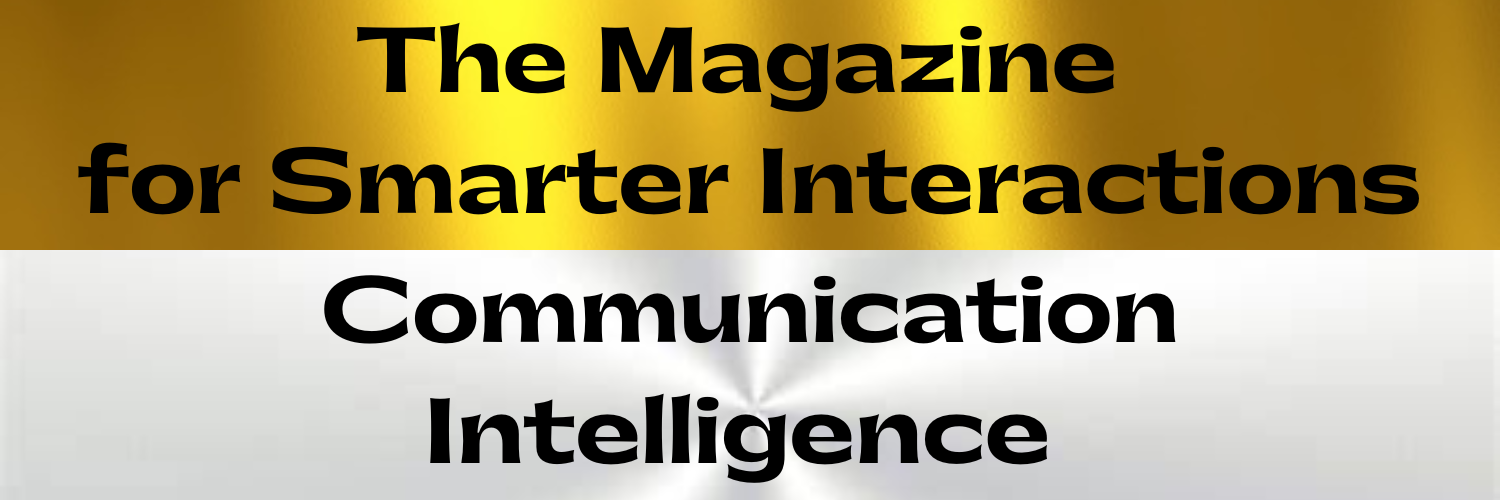Leaders Using ‘I’ Language in Taking Credit for Success
President Joe Biden recently publicly commented on tasks that he and his administration have worked on and accomplished during his presidency and while doing so, he exhibited extensive “I” language in taking credit.
Is this practice wise and if so, is there a point to where it can become too much for people to respect? Should a leader focus on “me,” when commenting politically or representing themselves as an individual?
Communication Intelligence magazine converses today about this topic with Sean Stewart, an historian, public speaker, business trainer and coach at Past Forward Talks and David Triana, an account executive at Delight Labs PR (public relations).
Biden’s choice of response followed a reporter’s doubts about his leadership abilities and competency:
“When I came to office, this nation was flat on its back,” he said, adding that “I knew what to do. I vaccinated the nation and rebuilt the economy. When Russia invaded Ukraine, I knew what to do. I rebuilt NATO and brought our alliance to rally the world. And above all, when democracy was taken I knew what to do.”
Biden may have been speaking defensively or strategically to win approval, favor and votes for reelection. His communication, did however, give off an interesting impression.
Maybe whether his language was a plus or minus is not a binary question.
Sean Stewart
“I would take a slightly different approach rather than simply saying it’s good or it’s bad outright,” Stewart says.
“One of the often overlooked aspects of leadership is that it takes place within a given social system. A truly effective leader will understand the people he’s leading and understand the social situation in which the leading is taking place.
“What works for one audience in one situation won’t always work for another audience in another situation, even within the same cultural group.”
He elaborates to further explain.
“We know this is true by instinct, despite rarely discussing it as constituting an important aspect of leadership,” Stewart says. “For example, a military leader shouting commands in battle will speak — and indeed will use language — quite differently from the same individual five years later leading a discussion in a corporate boardroom. Context and audience matter.”
With this, Stewart addresses the Biden question. “The underlying issue is straightforward. In the context of a president speaking to his fellow countrymen, is the use of the personal pronoun appropriate?” he rhetorically asks? “My sense is, that it is.”
Stewart explains specifically why.
“The audience knows what the situation is — a political pitch,” he says. “They know that a key aspect of it is promoting and even boasting about previous accomplishments and therefore this type of language fits the mood, the audience and the expectations then in force.”
David Triana
Triana looks at it differently.
“I believe it’s ok to use some ‘I’ language because Biden was directly challenged about his own ability to lead. It wasn’t so much a challenge to the Democratic Party at-large,” he says. “However, I believe that it was a mistake to say that he, solely, was responsible for what he believes are the successes of his administration.”
There was a different approach available.
“What would have been more effective was if he would’ve defended his own decision-making, but also used unifying language: More ‘we did this,’ and ‘we did that,’” Triana says, asserting, “I think that is more effective executive communication.”
He summarizes what he’s communicating.
“It’s similar to the common saying, ‘There's no 'I' in team,’” Triana says.
It’s important to note and consider when discussing this question what society has come to expect from leaders, especially ones in politics and how any approach will be interpreted.
“Imagine a presidential candidate, especially in these fraught times, avoiding boasting or showing off while running a campaign,” Stewart says. “What might be charming once would very soon come to look contrived, fake or even humble bragging.
“It would probably make him (or her), to this audience during this social situation, appear fake and untrustworthy.”
Staying with his core lesson, “Context and audience, and audience expectations, matter very much,” he says as a reminder.
Stewart doesn’t fight the ideal of humility and deflecting credit and praise.
“In a larger and more general sense, throughout history, there has been an undercurrent running wherein the best leader will remove their ego from the immediate equation,” he says.
The social tradition and expectation is focusing positively on others.
“What matters is that the team, the audience, or the group is being led both for the benefit of the individuals within the group and for the health and prosperity of the group as a whole,” Stewart points out.
And if it’s not, risks increase towards a high probability of failure.
“If a person’s leadership consists primarily of self-promotion with scant regard for the group, that leader tends not to last very long,” Stewart teaches, mentioning a name from history. “The Roman emperor Nero, among others, offers an example of this.”
Considering history, Stewart offers a suggestion and analysis.
“From this perspective, we could suggest that Biden not overdo the personal pronouns. The trick rests in finding the balance between understanding the audience and the purpose of the individual’s leadership on the one hand and not making that purpose all about the leader himself. And therein lies the art of leadership,” he says.
Stewart shifts into an advisory role.
“What Biden might try doing is mixing in a bit more praise of his team with his leadership credentials. So saying things like ‘I and my team have dealt with the Ukrainian crisis in such a way that we have offered help to Ukraine while also keeping some options open for dialogue with Russia.’ Or words to that effect.”
This however might not be received as intended.
“Some people might perceive this wrongly as an attempt to diffuse or deflect responsibility for a policy that might not be working as well as hoped,” Stewart warns.
“Again, context and audience expectations are key to understanding what makes a leader effective at leading and communicating.”



